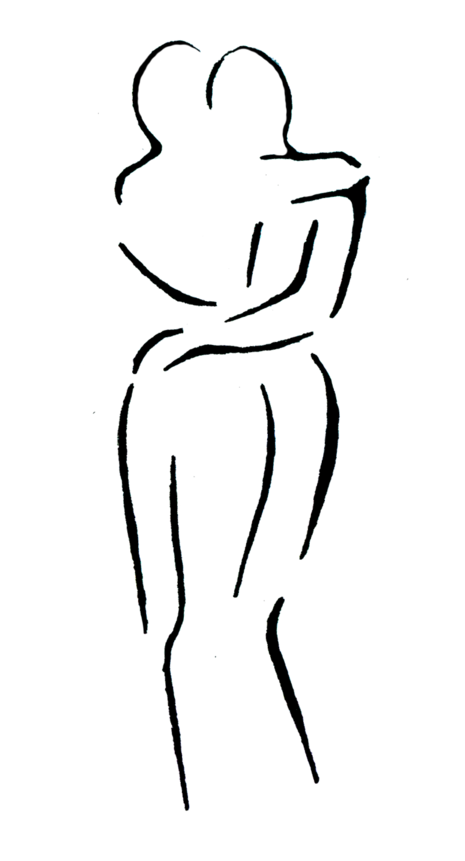New research finds that comfort with sexual communication is directly linked to sexual satisfaction. Alongside this: People who are more comfortable talking about sex are also more likely to do so while having sex, the researchers found. Expressing yourself sexually tends to be easier during sexual activity as guards and barriers tend to be lowered. After all, people who are uncomfortable asking their partners to wear a condom may be at higher risk of having unprotected sex and exposing themselves to sexually transmitted infections. Which would reduce the fear of pregnancy or STI's and increase an individual feeling relaxed....not to mention the all important intimacy! So try to communicate and express yourself honestly. This will lead to a happier sex life.
Some #sexeducation for this Friday evening. With #vulvodynia being the todays topic. Vulvodynia means ongoing pain in the vulva when there is nothing abnormal to see and no known cause for the pain. Whether it is generalised or localised, may be described as provoked, in other words touched, or spontaneous (occurring without touch as a trigger). Many conditions affecting the vulva can be painful (e.g. infections such as thrush or herpes, or eczema). In vulvodynia, pain is felt in the vulva when there is no obvious visible cause for it and other diagnoses have been ruled out by examination and investigation.There is also localised vulvodynia (also known as Vestibulodynia) which is a term used for pain arising at the entrance of the vagina. This is when any pressure, (touch or friction) is applied. Vulvodynia is not only physically painful but it can disrupt and unhinge intimate relationships and take and emotional and mental toll. In my next post I will be talking about treatment methods for vulvodynia.
Second part of my posts on #vulvodynia focusing on #treatmentmethods. From my experience and research, the multi-disciplinary approach is the best method. No single treatment is appropriate for individuals with vulvodynia and it may take some time to find a treatment, or combination of treatments, that helps alleviate pain.Some people experience relief with one particular treatment, while others do not respond or experience side effects. So finding out what works best for you is of upmost importance!
Firstly I would recommend a Psychosexual Therapist. We are trained to support you as an individual or perhaps as a couple. Receiving a diagnosis of vulvodynia or experiencing it, tends to affect a woman’s sexual relationships and emotional well-being.
Alongside this vulvodynia treatment may involve visiting a: •gynecologist or vulvovaginal specialist, •dermatologist, •physical therapist.
Current vulvodynia treatments include: ○Medications •Antidepressants ( both SSRIs and Tricyclic) •Anticonvulsians ○ Topical Medications (gels and creams) •Topical Hormonal Creams (e.g., estrogen, testosterone) •Topical Anesthetics •Topical Compounded Formulations (eg; anti-depressants) ○Other treatment options: •Nerve Blocks •Neurostimulation and Spinal Infusion Pump •There may also be some complementary or alternative medicine that would suit you. •Women with provoked vestibulodynia may be candidates for surgery. Success rates for surgery vary from 60% – 90%. Following a diagnosis, take your time finding what suits you for treatment options. We are all different which means what works for one person, may not for the other. Ensure that you have someone to talk to, be it a loved one or a health care professional so that you feel supported.
Dyspareunia is pain or discomfort in a woman’s labial, vaginal, or pelvic areas during or after sex.There are many different causes of dyspareunia, resulting in different levels and kinds of pain. One of the main reasons so many cases go untreated is because women feel uncomfortable talking to their GP about this very private issue. If you're worrying about having the conversation try imagine going home knowing that you have taken the first steps towards recovery and how good you'll feel. There are many forums and even Facebook groups that can help support you. Remember that you are not alone. Contact a Sex Therapist like myself for further assistance.
Loss of desire, also known as low libido. Can affect women at certain times of life.
There are many obvious times such as during pregnancy, after having a baby, during menopause. However some women experience most of the time.
Low libido can have a range of physical or psychological causes, including:
*Stress
*Depression
*Excessive drug use or alcohol.
*Medication side effects
*Hormone issues (drop in testosterone)
*Relationship issues
And many more reasons. If you are struggling with low libido it is worth visiting your GP in the first instance. They can assess for any physiological aspects. If ruled out sex therapy can help assist you in reconnecting with your sexuality and help with any relational issues.
Sexual dysfunction is any physical or psychological problem that prevents you or your partner from getting sexual satisfaction. Male sexual dysfunction is a common health problem affecting men of all ages, but is more common with increasing age. It's estimated 1 in 10 men has a problem related to having sex, such as Rapid (premature) Ejaculation or erectile dysfunction.
There are many treatment methods including medical, surgical and therapeutic. However it should be understood that this is about treating the individual and what is right for them. If you are concerned attend your GP clinic in the first instance. They should be able to guide you in the right direction.






